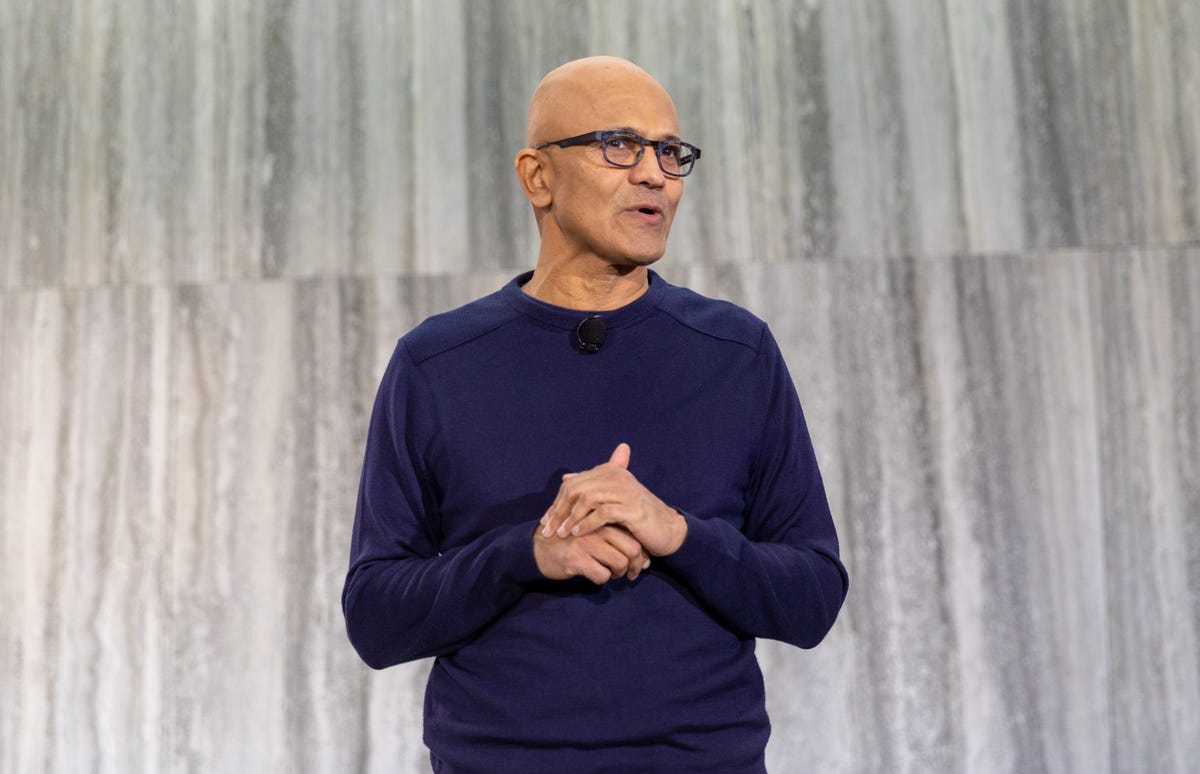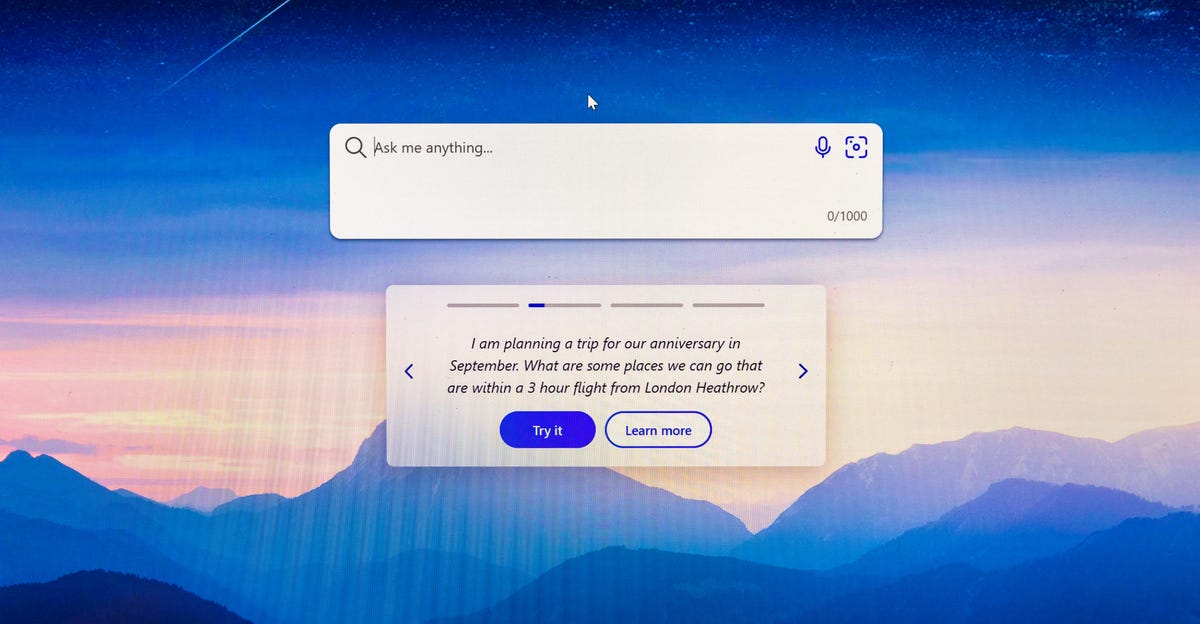Microsoft on Tuesday unveiled a new version of its Bing search engine that incorporates the technology behind ChatGPT, an AI system for conversational and creative responses that marks the first big chance in years to get ahead of search king Google.
Bing now is an “AI-powered co-pilot for the web,” the tech giant said, delivering search results infused with information from the large language model from Microsoft partner OpenAI. Bing also gets a new chat window that Microsoft said will help deliver shopping lists and advice, travel advice and trivia games. The technology also is built into Microsoft’s Edge browser, able to perform tasks like summarizing PDFs and generating LinkedIn posts.
“All computer interaction is going to be mediated with an agent helping,” Chief Executive Satya Nadella said at a launch event at the company’s headquarters in Redmond, Washington. “We’re going to have this notion of a co-pilot that’s going to be there across every application.”
You can try a preview version of the new “AI powered co-pilot” technology with a limited number of Microsoft-prepared queries at bing.com/new and sign up to get on a waiting list for broader release. In coming weeks, Microsoft plans to offer it to millions of people and add a mobile version. For some examples, check out my colleague Laura Hautala’s list of ways you’ll be able to use Microsoft’s new AI tools.
The technology is a major new development for the search business, which hasn’t changed much over the years. Google has worked to blend more answers into its results, but that pales in comparison to what new AI technology can offer. Chat technology based on large language models — the AI systems trained on huge swaths of text on the internet — offers vastly more complex answers and information.
“Microsoft does have a window now to be a bigger player in the consumer tech space, starting with its chatbot assistant embedded with Bing,” Gartner analyst Jason Wong said.
Google, king of the search engine business, tried to upstage Microsoft by revealing its own AI chatbot, Bard, on Monday. Google invented the “transformer” AI technology key to these large language models, and it’s a serious contender. For one thing, Google, not Bing, is the go-to site for people searching for information today. Google didn’t respond to a request for comment.

Microsoft CEO Satya Nadella
Stephen Shankland/CNET
But Microsoft appears to be ahead in building the technology directly into its products. And when Bing incorporated the AI information into its search results, “We saw the largest jump in relevance in two decades,” said Yusuf Mehdi, chief consumer marketing officer at Microsoft, referring to how well the search results deliver what people need.
Microsoft will show ads next to the new AI search results, Mehdi said.
As of January, Bing had a 3% share of search engine usage, far less than Google’s 92%, according to analytics firm StatCounter. Search is Google’s top revenue source, since the company places ads next to search results.
“Considering the very fast announcement to get ahead of Microsoft’s announcement today, I have to believe Google is a bit concerned about the prospect of viable competition in search they haven’t faced for most of their history,” CCS Insight analyst James Sanders said.
Microsoft tries to avoid AI pitfalls
Microsoft is trying to avoid some big potential AI problems. It bills its AI answers as suggestions and starting points, not the final word — thus the term “co-pilot,” not pilot.
For example, when you want to use Microsoft’s new AI tools for a creativity boost, you should treat the AI text as a draft, not the final words you’ll post. The technology uses its own Bing technology to try to find useful and authoritative information sources and to scrub out bad data, including low-value text generated by AIs.

Travel planning is another example of AI-augmented help that Bing can offer.
Stephen Shankland/CNET
Bing in some situations cites its sources, for example articles with product recommendations, for better transparency. In comparison, it’s anybody’s guess where ChatGPT gets its advice and answers.
And if you don’t like the results, the Bing interface offers a thumbs-down button where you can complain next to a thumbs-up button for praise.
Microsoft touted its Responsible Artificial Intelligence policy as an important framework for guiding its work and providing engineering tools to follow them. An earlier version wasn’t concrete enough for real-world use, said Sarah Bird, an AI ethics and responsibility leader at Microsoft. For example, Microsoft was taken by surprise by a Stanford study finding its speech-to-text technology didn’t work as well for Black people even though Microsoft explicitly prioritized AI fairness, she said.
“There’s a real vigor around operationalizing those principles,” Bird said.
Bing and Edge are the first steps of integration of the OpenAI tools
“You probably had a wow moment when you used ChatGPT,” said Jordi Ribas, leader of Bing search and AI. “Now just imagine that you’ll do that in search, while you’re browsing, when you’re writing a document, you’re trying to write code.”
Editors’ note: CNET is using an AI engine to create some personal finance explainers that are edited and fact-checked by our editors. For more, see this post.

